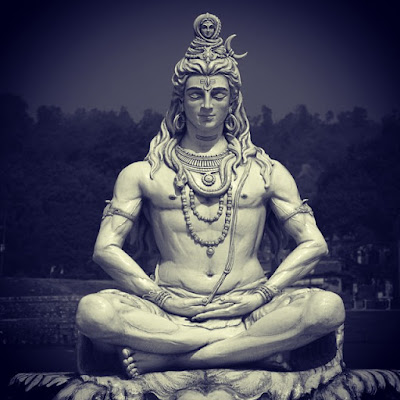Mahashivratri, which means “The Great Night of Shiva” is the most significant event in India’s spiritual calendar. Mahashivratri is the day to recognize the Shiva Tattva and go deep within. This year Maha Shivarathri falls on 24th February, Friday.
In our tradition, Shiva is seen in many forms as the enigmatic, non-perceivable Ishwara; the auspicious Shambho; disarmingly naïve Bhola; Dakshinamurthy, the great master and teacher of the Vedas, Shastras and Tantras; the easily forgiving Ashuthosh; Bhairava, the one tainted with the very blood of the creator; Achaleshwara, the absolute stillness; the most dynamic of dancers, Nataraja – as many aspects as there are to life, that many aspects have been offered to him.In the yogic tradition, Shiva is not worshiped as a God. He is the Adiyogi, the first Yogi, and Adi Guru, the First Guru from whom the yogic sciences originated. The word “Shiva” literally means “that which is not.” That which is, is creation. That which is not, is Shiva.
Shivaratri Celebrations in India are marked with devotion and religious fervor. Joy is written large on the faces of millions of Lord Shiva devotees as they start preparing for the biggest Lord Shiva festival in advance. Celebrations of Shivaratri begin with the break of the dawn on the Shivratri day and continue all though the night. Devotees observe fast and spend the day in devotion and worship of Lord Shiva.Devotees also participate in the jaagran or the night vigil organized in various Shiva temples across the country. Devotees believe that sincere observance of Shivaratri puja and all night worship of Lord Shiva will absolve them of all their sins and liberate them from the cycle of birth and death.
To offer pujas and abhishekams to Lord Shiva on the auspicious MahaShivarathri, please visit: http://www.devaayanam.in/List
Significance of Mahashivarathri:
The fourteenth day of every lunar month or the day before the new moon is known as Shivratri. Among all the twelve Shivratris that occur in a calendar year, Mahashivratri, the one that occurs in the month of Kumbh or February-March is of the most spiritual significance. On this night, the northern hemisphere of the planet is positioned in such a way that there is a natural upsurge of energy in a human being. This is a day when nature is pushing one towards one’s spiritual peak. It is to make use of this, that in this tradition, we established a certain festival which is nightlong. To allow this natural upsurge of energies to find their way,one of the fundamentals of this nightlong festival is to ensure that you remain awake with your spine vertical throughout the night.
Mahashivratri is very significant for people who are on the spiritual path. It is also very significant for people who are in family situations, and also for the ambitious in the world. People who live in family situations observe Mahashivratri as Shiva’s wedding anniversary. Those with worldly ambitions see that day as the day Shiva conquered all his enemies.But, for the ascetics, it is the day he became one with Mount Kailash. He became like a mountain – absolutely still.That day on Mahashivratri, all movement in Him stopped and he became utterly still, so ascetics see Mahashivratri as the night of stillness.
Shivratri is to remind us that we are Shiva. That is why we say, "Shivoham, Shivoham", which means 'I am Shiva, I am that principle, I am the truth, eternity, beauty, and benevolence'. Shivratri is an occasion to remember this.
Legends related to Mahashivarathri:
The legend of marriage of Shiva and Shakti is one the most important legends related to the festival of Mahashivaratri. The story tells us how Lord Shiva got married a second time to Shakti, his divine consort.The night on which the divine union of Shiva and Shakthi is observed as the Maha Shivarathri.
According to another version of the legend, Goddess Parvati performed tapas and prayers on the auspicious moonless night of Shivaratri to ward off any evil that may befall her husband. Since then, womenfolk began the custom of praying for the well being of their husbands and sons on Shivaratri day. Unmarried women pray for a husband like Shiva, who is considered to be the ideal husband.
Observance:
Shivratri day is celebrated with Rudrabhishekam (singing of the ancient Vedic mantras, which is accompanied with a ceremony of washing the Shiva Linga with milk, curd, honey, rose water, and other auspicious offerings).
The night on this day—when the constellations are in a particular position—is very auspicious for meditation. And so, it is very useful for people to keep awake and meditate on Shivratri.
Wishing everyone a blissful Maha Shivarathri!
Information Courtesy: http://isha.sadhguru.org/blog/





